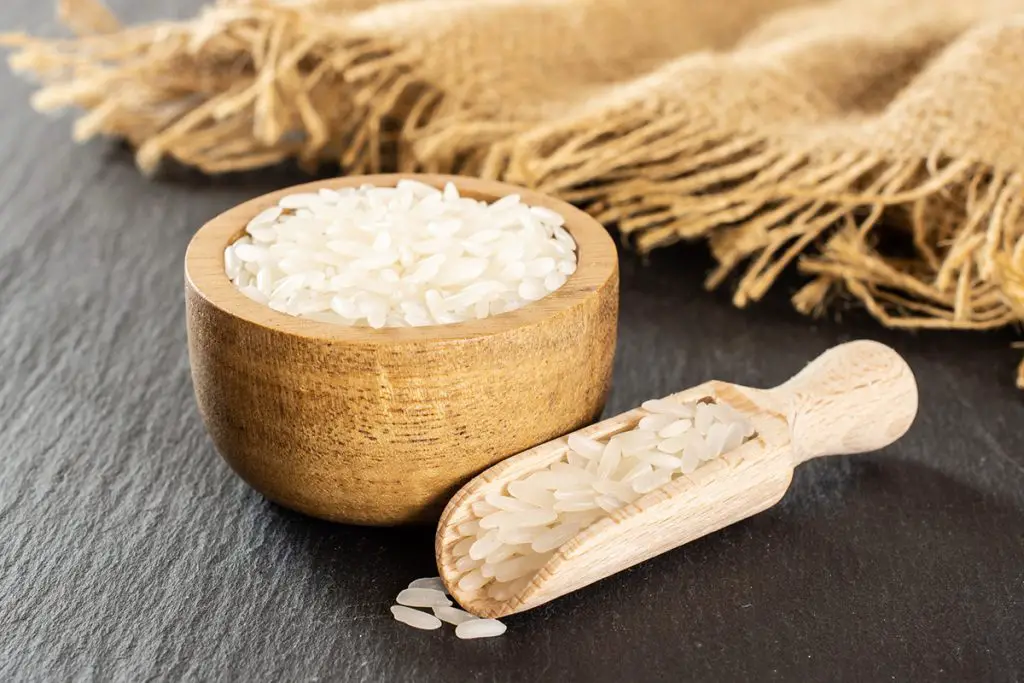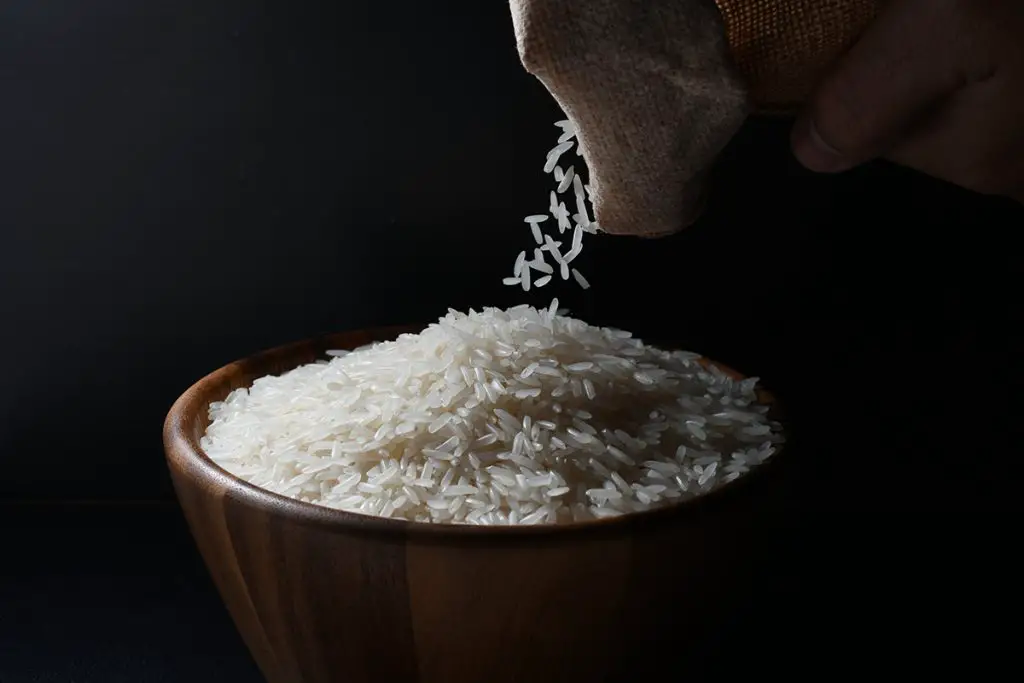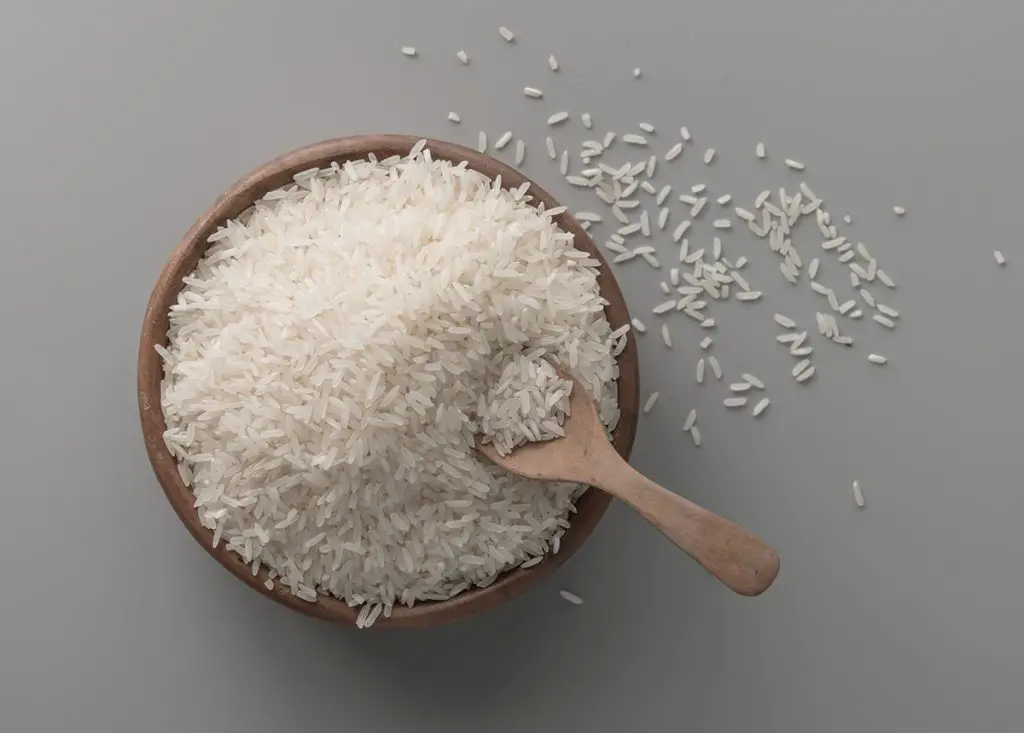Freezing Uncooked Rice (Benefits & How To)
From preventing the development of bacteria and the infestation of bugs to prolonging the shelf life of your food, freezing uncooked rice is a highly beneficial method of storage. Not only do you save money by maintaining the quality of your rice, but you can save time and effort by storing your uncooked rice, taking it from the freezer to the rice maker in seconds. Freezing uncooked rice is a simple and effective method for storage and safety and increases the shelf life of your rice by potentially decades.
You can freeze uncooked rice for up to 25 years as long as you freeze and store it properly. Doing so is pretty simple, as well. All you will need to properly freeze and store uncooked rice are proper storage containers, your uncooked rice, and your freezer.
Below, you will find why you may want to freeze your uncooked rice, how to properly freeze your rice for the best results, and all the benefits of this food storage practice.
Why Do You Want to Freeze Your Rice?
You’ll want to freeze your uncooked rice if you aren’t going to use it to ensure it doesn’t develop bacteria or become home to weevils and other bugs. Additionally, freezing rice can prolong its shelf life and ensure that mice and rats don’t get into it.

Freeze Rice to Prevent Weevils
Rice can develop bacteria or bugs over time if stored in pantries. Rice can be home to rice weevils, a kitchen pest almost identical to rice grains in their larvae stage. They can be found in bags and boxes, nesting in uncooked rice and other grains. While not necessarily dangerous to your health, rice weevils cause significant grain loss, making your bag of rice less complete over their lifetimes.
Rice weevils in their larvae stage are nearly identical to rice grains and challenging to detect. You can check rice grains for reddish-brown “grains” in rice, which are actually adult weevils.
Adult weevils are 4 mm (0.15 inch) in length, with yellowish or red wings. They are prominent in warm environments and struggle to develop in colder temperatures – which is why freezing rice is the best prevention for rice weevils.
Freeze Rice to Extend Its Shelf Life
You can freeze almost any kind of rice grain available, and doing so will help extend its shelf life and keep it away from small rodents or even inquisitive pets.
Typical rice varieties in the kitchen include:
- Traditional white rice
- Whole grain rice
- Aromatic jasmine rice
- Wild rice
- Mixed types
Unfortunately, rice has an expiration date like any grain you find in your kitchen. Uncooked white rice, wild rice, and aromatics like jasmine have a shelf life of about four to five years when properly stored.
In contrast, brown rice lasts only three to six months after manufacturing due to its higher oil content. It’s easy to tell if your rice has gone wrong, first by checking the container used for storage and next by the state of the grains themselves. If the package has holes, dampness, or bugs, the rice is most likely spoiled. Signs of discoloration, specifically in brown rice, are another sign of spoiling.
Easy indicators of rotten rice also include a “funny” smell or oily texture indicative of moisture and bacteria development. Like with every other kind of spoiled food, it is better to remove the rice than risk saying, “It doesn’t look that bad.”

Other Perks of Freezing Rice
Frozen containers of rice make easy hot/cold compresses for injuries. Similar to the concept of a bag of frozen peas, frozen rice forms to whatever area or appendage you place it on, allowing for a full-coverage effect.
And who hasn’t accidentally dropped their phone in a puddle or, worse yet, in the toilet?
A bag of dry rice can save cell phones and other electronics that have been exposed to water. Since rice absorbs water, it pulls liquid from the source and stores it within its shell. Leave your waterlogged phone in rice overnight, and it will be good as new – well, at least hopefully.
If you like to buy in bulk, storing your bulk rice purchase in the freezer is an effective way to save space in your cabinets, and keep your product in perfect condition for as long as needed. You will save on money since you won’t have to replace your rice when it goes bad, and you can store it in serving-size containers, making meal prep quick and simple.
How To Freeze Uncooked Rice Correctly
Freezing rice is quite simple, and you can do it by following five easy steps.
- First, gather your supplies. You will need a sealable storage container like a freezer bag or Tupperware.
- Next, make sure that the rice is completely dry. Any moisture could encourage mold growth in the freezer. Mold could defeat the purpose of freezing the rice, so that variable is of the utmost importance.
- Seal the container, making sure to remove as much air as possible. If you have a vacuum sealer, this can help you get the container completely sealed without air while providing convenient storage space. Improperly sealed containers are asking for trouble as they can grow bacteria and pests when exposed to outside elements.
- Label your container with the type of rice and the date you stored it. This will give you future clarity when you are ready to use it.
- Gently place the bag or container in the freezer, and you are set. Storing your uncooked rice this way can expand your rice shelf life by literally decades.
Some rice varieties can be stored for up to 25 years under the proper conditions. With a shelf life of 25 years, you can use this rice as emergency food or as a regular staple of your diet for years to come.
Freezing requires the rice to be placed in an area where the temperature will stay at a near consistent number at or below 32 °F (0 °C). The fridge alone is not cold enough to maintain this state.

Freezing Cooked Rice
Along with uncooked or raw rice, you can also freeze cooked rice. Use the same method for freezing, except be sure your cooked rice is cooled down before preparing it for storage.
Cooked rice will only last for one month in the freezer, but that’s still significantly longer than the three to four days it would last in the fridge. It may not last as long as uncooked rice, but it increases the shelf life for the rice you have already prepared.
Checking Your Frozen Rice for Spoiling
Sometimes, against the odds, your frozen rice will go rancid in storage. It’s a little more challenging to detect, but your frozen rice can spoil. Changes in temperature or a broken seal can be the leading culprits. Check for changes in color or texture, and hunt for weevils. Rice weevil larvae will be harder to detect, but adult weevils are easy to spot, thanks to their dark color.
While weevils aren’t likely to survive in freezing temperatures, if there were any issues with the freezer’s temperature, and the weevils were present prior to the freezing, it could be a perfect storm for them to ruin your well thought out plans. Immediately dispose of spoiled rice, and disinfect the storage container if you reuse it.
How to Unfreeze Rice for Cooking
Unfreezing is just as easy as freezing. The primary rule to remember is avoiding heat while defrosting your rice because heat will encourage bacteria growth. Don’t let your hard work go to waste!
Allow the rice to come to room temperature on its own terms, allowing it safely to become just like new once again. There’s no need to defrost your rice traditionally. You can follow your usual rice recipe straight out of the freezer.
Final Thoughts
Freezing uncooked rice is a great way to prolong your shelf life and store it away from pests and bacteria. It’s a simple process and helps you create a cleaner and safer home kitchen. Use your frozen rice for your next risotto or rice pudding. You’ve got decades to plan for your rice recipes.


